Saving Country Music’s 2017 Essential Albums List
2017 was a bumper crop year for great country and roots records, and this is reflected in Saving Country Music’s 2017 Essential Albums list, which has expanded once again to include a total of 65 albums, each of which was reviewed in-depth during the year, and each which can be seen with a summation of the review below. Along with that are included other albums that were reviewed with a positive grade in 2017, along with a list of other records that are either awaiting review, are “on the radar,” or should otherwise be considered worth checking out.
A few ground rules:
- This does NOT include the Album of the Year Nominees since they’ve already had a spotlight shined on them through the nomination process. In the spirit of highlighting what was overlooked and not what is obvious, they are not included here. Consider those 1o nominees also “Essential.” Every year people overlook this rule and say, “Hey, where’s so and so?” and we all point to this rule.
- There is no specific order to the list, aside from the first 11 albums being considered the “Most Essential,” or albums that just missed the bubble to be considered Album of the Year nominees.
- These are not all the albums that will eventually end up on the Essential Albums List. More albums will be reviewed before the end of the year, and into the first few weeks of January, and potentially beyond that period if appropriate. Just because something is not included here doesn’t mean it won’t be in the future. Once again, Saving Country Music reviewed more albums than the previous year, so please don’t complain that something was overlooked, be thankful this free resource to music listeners continues to be offered and expanded year after year.
- As always, suggestions of additional albums, lists of your essential albums, and opinions about this list are encouraged, and can be shared in the comments section. Just no “Hey, this list is entirely bunk because so and so wasn’t included!” or “so and so WAS included.”
MOST ESSENTIAL – Dori Freeman – Letters Never Read
 In such busy and cluttered times as these, when all information and music seems filled with acrid sentiments and divisive tones, Dori Freeman is separating herself from the gaggle of country’s most encouraging prospects by mining the simple beauty from Appalachian dialect and tone, taking deprecated compositions in outmoded tongues and making them feel more relevant than the most modernized hip-hop beats, and then contribution her own original expressions in tastefully and intelligently arranged moments, ushering the listener away to a place apart from the constant friction of modern, stifling noise.
In such busy and cluttered times as these, when all information and music seems filled with acrid sentiments and divisive tones, Dori Freeman is separating herself from the gaggle of country’s most encouraging prospects by mining the simple beauty from Appalachian dialect and tone, taking deprecated compositions in outmoded tongues and making them feel more relevant than the most modernized hip-hop beats, and then contribution her own original expressions in tastefully and intelligently arranged moments, ushering the listener away to a place apart from the constant friction of modern, stifling noise.
With her self-titled debut in 2016, Dori announced herself as an immediate attention-getter in the Appalachian country space. But there was a still a timidness present, especially in her live show. She was unwilling to participate in social media, or expound on personal information like the fact that she was a single mom. A year has done wonders for her confidence. Her consent to share the inspiration behind her songs now makes them even more personal to her audience. And as Kitty Wells, Loretta Lynn, and Emmylou Harris before her, she’s proven that bearing young is not the death sentence on a musical career the patriarchal society often decrees, it can be the impetus and inspiration for creative exploration and the pursuit of personal goals. (read review)
MOST ESSENTIAL – Jason Eady – Self-Titled
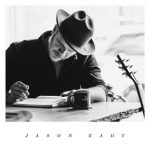 Jason Eady can do what they can do, but they can’t do what Jason Eady does, which is strip it all back and have the appeal for the music rest entirely on the written composition of a song. Even the most minimalist of performers have to rely a little bit on style, groove, or some sort of window dressing. But for Jason Eady, it’s almost like a type of Zen to him—trying to find the slimmest, most fragile accompaniment to his words as possible where you can’t help but allow the theater of the mind to take over, and your thoughts be submerged in the story and message.
Jason Eady can do what they can do, but they can’t do what Jason Eady does, which is strip it all back and have the appeal for the music rest entirely on the written composition of a song. Even the most minimalist of performers have to rely a little bit on style, groove, or some sort of window dressing. But for Jason Eady, it’s almost like a type of Zen to him—trying to find the slimmest, most fragile accompaniment to his words as possible where you can’t help but allow the theater of the mind to take over, and your thoughts be submerged in the story and message.
What comes across most starkly on this record is Jason Eady’s use of perspective in his writing. To put himself in the shoes of the man let free so Jesus could be crucified involves a depth of insight most of us just don’t have the discipline to explore. The timely “Black Jesus” pulls a similar maneuver, only more involved. This song is only capable from someone with a knack for seeing the world through someone else’s eyes, but exhibiting even more dexterity of perspective, Eady then looks back at himself through that same pair of foreign eyes to gain a whole new level of insight on his own original perspective not just to see the differences, but to espouse on the universal similarities. (read review)
MOST ESSENTIAL – Colter Wall – Self-Titled
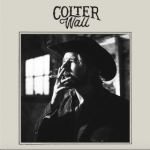 Like opening an old chest long ago stashed away in an attic or crawl space and ages forgotten, but once it’s cracked and the odoriferous concoctions emanating from its bowels mix with the memories tied to the contents in an overwhelming waff almost too much to behold, the yawning of Colter Wall’s vocal aperture is like the spontaneous appearance of a hoary portal into the past where the present day escapes the mind and you find yourself amidst the ghosts of a by-gone epoch.
Like opening an old chest long ago stashed away in an attic or crawl space and ages forgotten, but once it’s cracked and the odoriferous concoctions emanating from its bowels mix with the memories tied to the contents in an overwhelming waff almost too much to behold, the yawning of Colter Wall’s vocal aperture is like the spontaneous appearance of a hoary portal into the past where the present day escapes the mind and you find yourself amidst the ghosts of a by-gone epoch.
Colter Wall’s voice is truly a thing to behold. No descriptor or accolade employed to convey its powers of conjuration can be accused of embellishment. The only detriment is that future generations will be burdened to find fresh adjectives to describe it, while us currently present in its audience have the unfair opportunity to attempt to recount its effects while it’s still being presented in its nascent state. (read review)
MOST ESSENTIAL – Rodney Crowell – Close Ties
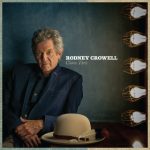 Crowell has not been caught napping in the last few years—releasing a couple of well-received duet albums with Emmylou Harris while pumping out original records as well. But Close Ties feels like something much more calculated, purposeful, and inspired, like he’s been saving up material, and waiting for the right time when the wounds aren’t so fresh, but the memory and sense of loss is still ablaze in his mind.
Crowell has not been caught napping in the last few years—releasing a couple of well-received duet albums with Emmylou Harris while pumping out original records as well. But Close Ties feels like something much more calculated, purposeful, and inspired, like he’s been saving up material, and waiting for the right time when the wounds aren’t so fresh, but the memory and sense of loss is still ablaze in his mind.
Close Ties finds Rodney Crowell getting incredibly personal, naming names, and using candid language with incredible honesty and a colloquial candor most artists are too inhibited to communicate. Rodney Crowell is one of the very few people who can refer to the great Susanna Clark as a “bitch,” because that’s how close he was to her. If you or I tried that, he’d kick our asses, and for good reason. (read review)
MOST ESSENTIAL – Valerie June – The Order of Time
 The songs of The Order of Time are delicately crafted and incredibly deliberate. Though Valerie June’s music has been naturally slated into this whole soul roots revival thing that we’ve seen carried forth by folks like Leon Bridges, Anderson East, and even Sturgill Simpson, there’s a primitive country element here that goes overlooked and misunderstood. The almost monotone and stripped-down “Man Done Wrong” and the beginning whisper vocals on the autobiographical “Long Lonely Road” are not the type of thing the slick roots hipsters are likely to comprehend, at least at the beginning.
The songs of The Order of Time are delicately crafted and incredibly deliberate. Though Valerie June’s music has been naturally slated into this whole soul roots revival thing that we’ve seen carried forth by folks like Leon Bridges, Anderson East, and even Sturgill Simpson, there’s a primitive country element here that goes overlooked and misunderstood. The almost monotone and stripped-down “Man Done Wrong” and the beginning whisper vocals on the autobiographical “Long Lonely Road” are not the type of thing the slick roots hipsters are likely to comprehend, at least at the beginning.
Valerie June is a niche performer who’s found a wider acceptance—the fate we pray will befall many of our favorite niche performers in hopes to improve music for the general population and not just ourselves. But unlike some of those niche performers, Valerie June was able to hold onto herself while finding a bigger audience. This means she will remain misunderstood by some, which might be a sign of quality in itself. But The Order of Time finds new ways to express old things, which is the hardest task for old music in the new era. (read review)
MOST ESSENTIAL – JD McPherson – UNDIVIDED HEART & SOUL
 All you east Nashville hipsters with your weak-ass white boy throwback soul records stretching to capture even a modicum of the spirit of the Muscle Shoals era after you decided country wasn’t cool anymore, and thinking horn sections alone would be enough to get your songs placed in hip ads for iPhones or The Gap, step aside and vacate the stage because one of the masters of our generation at drilling down to the essence of old school music and revitalizing its spirit has just released a new album, and taken your ass to school.
All you east Nashville hipsters with your weak-ass white boy throwback soul records stretching to capture even a modicum of the spirit of the Muscle Shoals era after you decided country wasn’t cool anymore, and thinking horn sections alone would be enough to get your songs placed in hip ads for iPhones or The Gap, step aside and vacate the stage because one of the masters of our generation at drilling down to the essence of old school music and revitalizing its spirit has just released a new album, and taken your ass to school.
That is what McPherson has done on UNDIVIDED HEART & SOUL. Just as the title and all the tracks are capitalized in the metadata like your crazy uncle does in his Facebook posts, this record is JD McPherson fearlessly asserting his vision on what modern old school rock and soul music should be, not necessarily trying to re-interpret those sounds and relying simply on nostalgia to find appeal with an audience, but trying to put himself in the shoes of the old soul greats and ask what they would sing and play if they were still around, and still had enough fire in their belly to do it. (read review)
MOST ESSENTIAL – Willie Nelson – God’s Problem Child
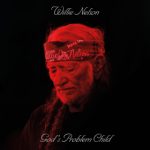 Willie Nelson has always been one to defy his nature. His performing career didn’t take off until he was nearly 40. His youthful indiscretions were replaced by his transformation into an iconic health nut. Willie has stated that he wants to die on stage, and that very well may happen. But there’s something about Willie’s aura that makes you believe he will live forever. That’s why it’s a little strange to hear him pondering on the next stage of life, and singing about losing faculties like on “Old Timer” about coming to grips with one’s own age, or the slow and reflecting “It Gets Easier” about breaking commitments as opposed to defying odds to keep them. Even “Butterfly” from God’s Problem Child seems to be about trying to capture something later in life that always remains elusive.
Willie Nelson has always been one to defy his nature. His performing career didn’t take off until he was nearly 40. His youthful indiscretions were replaced by his transformation into an iconic health nut. Willie has stated that he wants to die on stage, and that very well may happen. But there’s something about Willie’s aura that makes you believe he will live forever. That’s why it’s a little strange to hear him pondering on the next stage of life, and singing about losing faculties like on “Old Timer” about coming to grips with one’s own age, or the slow and reflecting “It Gets Easier” about breaking commitments as opposed to defying odds to keep them. Even “Butterfly” from God’s Problem Child seems to be about trying to capture something later in life that always remains elusive.
However Willie’s voice remains strong on this recording, and his guitar playing is spirited. Willie also has a little fun in “Still Not Dead Again Today” with the fact that as one of the world’s most revered characters, even outside of music, internet hucksters have likely made millions via ad revenue from fake death stories and other internet exploitations surrounding embellished takes on Willie’s health status. Willie is one of the very last of an era, and this is never made more clear than when he sings the tribute to his late friend Merle Haggard written by Gary Nicholson, “He Won’t Ever Be Gone.” (read review)
MOST ESSENTIAL – Sam Outlaw – Tenderheart

Sam Outlaw and his music have always been a lot more complex than what you can preface in a few sentences of bio information, or fit in a summation of his music. The guy is his own animal. A country fan may half expect to hate this record, not for what it is, but for what it isn’t. But as an unapologetic country fan, I found everything I wanted from this record, while someone who self-identifies as more of a folk rock fan may feel the same. That’s not a sign of confusion from Sam or a lack of cohesiveness, it’s just shows that Sam decided to be himself on this record, and for him that requires satiating a wider swath of West Coast roots. (read review)
MOST ESSENTIAL – The Brother Brothers – Tugboats

All we have at the moment is an EP, but in six songs and 18 minutes, The Brother Brothers accomplish what entire folk labels and festival lineups struggle to not accomplish, which is honing in on something so timeless and carnal to the musical intellect, the music resonates in the soul like echoing within the walls of a great cavern. The notes, and the words are not enough. You must have chemistry. And that’s what The Brother Brothers have in bushel baskets. Enough can’t be said positively about The Brother Brothers and Tugboats. (read review)
MOST ESSENTIAL – Shinyribs – I’ve Got Your Medicine

What I’ve Got Your Medicine does best is to sell you on the idea that Shinyribs is something that you should be a connoisseur of. The first part of this record is not all wild-assed like much of their live show. Kevin Russell really takes the time to hone in on his singing to ingratiate this music to you without all the visual aids and antics of the live experience. You think of Russell as an A-list performer, but not an A-list singer necessarily, though not to knock him. Yet this record really pulls out the best of his singing talents, allowing him to focus all that energy of performance into producing recorded magic. (read review)
MOST ESSENTIAL – Parker McCollum – Probably Wrong

The argument is often made how country music must evolve to stay relevant. This reasoning is often employed to justify some of the most egregious examples of country perversion ever subjected to the human ear which are often much more akin to devolution than forward progress. That argument also discounts all the artists in bluegrass, Texas country, and Americana who actually are actively moving the music forward by bridging more contemporary sounds with a staunch adherence and appreciation of country’s roots. There might not be a better example of attempting to define country music’s creative horizon and pushing the possibilities of country forward than Parker McCollum’s Probably Wrong. (read review)
MOST ESSENTIAL – Sarah Shook & The Disarmers – Sidelong
***NOTE: Saving Country Music originally reviewed this album in 2015. It is included here since it was reissued by Bloodshot Records in 2017.

Who knows what whims govern the exiled ghost of authentic country as it scans the fruited plain looking for souls to possess? But it found Sarah Shook in North Carolina, and her destiny was inescapable. Sidelong may find itself in a dark and troubled place much of the time, but it’s good old country music at its heart. (read review)
– – – – – – – – – –
***REMEMBER: Album of the Year Nominees are not included on this list***
– – – – – – – – – –
Whitney Rose – Rule 62

Whitney Rose and Rule 62 don’t adhere as much to genre as they do to era. The heart is definitely classic country, but Whitney is also willing to get a little jangly and classic rock and roll in songs. Having Raul Malo on board, who is so fluent in the era Whitney looks to evoke, as well as players who understand the textures of this time period, make the transitions feel fluid and organic. (read review)
Country Side of Harmonica Sam – A Drink After Midnight
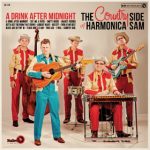
Making the whole enterprise of Country Side of Harmonica Sam that much more astounding is that this is not even a North American band. Harmonica Sam and his band are from Sweden of all places, but you would never be clued into this by listening to the music from the incredible expertise the entire band evidences in recreating the old sounds. “Shocking” is really the only appropriate word here when you behold what they’re capable of. For those that feel marooned in the modern world, or just love the simple, by-gone nature of classic country, Country Side of Harmonica Sam is a marvel, and a welcome treat to the senses. (read review)
Rhonda Vincent & Daryle Singletary – American Grandstand

But there’s just something about certain pairs of voices that makes it imperative they collaborate, and all rules and worries get thrown out the window. Rhonda Vincent and Daryle Singletary is one of those pairs of voices. It’s almost criminal to contemplate them not collaborating, and specifically on some of the most iconic country music duets of all time, if for no other reason than to have their particular versions cataloged in the annals of the genre. If there’s any concern here, it might be why it took these two so damn long to pull this together, and if they’ll stop here. (read review)
The Secret Sisters – You Don’t Own Me Anymore
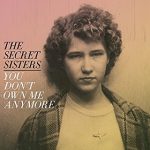
You Don’t Own Me Anymore is sad, pleading, powerful, and poignant. Yes, it’s an album of empowerment, but the stains and bruises of repression and heartbreak are still what are top of mind, and need to be sung out through verse to have their pain expelled, similar to how settlers sang starkly of the death, loss, heartbreak and fear that surrounded them in early America. (read review)
Hellbound Glory – Pinball

Pinball is a fun record, featuring really enthralling songwriting at times, with a few selections worthy to be installed in Leroy Virgil’s resume as top flight material. Scumbags need heroes too, and people to sing about their lives uninhibited by the uptight norms that keep country music a space apart from the reality that some find themselves living amongst. Leroy Virgil and Hellbound Glory are those heroes. (read review)
The Wild Reeds – The World We Built

The Wild Reeds and The World We Built is wide, sweeping, bold, expansive, and exploritative in the way they skip right over the same old verse/chorus 1-4-5 structures, and would rather craft these quiet moments leading into soaring crescendos that do more justice to the emotional roller coaster present in the lyrics, and in life. Though The Wild Reeds are comprised of three primary songwriters, it’s challenging to pick out the individual composers of each song in the way their styles meld just as well as their singing voices. (read review)
Billy Strings – Turmoil & Tinfoil

Bluegrass, just like all of music, must evolve to stay relevant to modern ears. Yet doing so within the discipline where the roots of the music remain in tact is the trick that takes an additional level of ingenuity and passion to accomplish. And this is what Billy Strings does with Turmoil & Tinfoil. (read review)
John Baumann – Proving Grounds
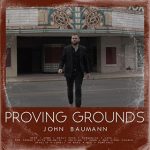
John Baumann has plenty of songs that get the blood pumping and the alcohol flowing. As fun as some of these songs can be, they will not be the indelible mark of John Baumann’s career, though they may be the gateway drug for many to get there. It will be his deeper material that will keep the fans he makes begging for more like “Pontiacs,” “Old Stone Church,” and “Lonely in Bars.” (read review)
Justin Townes Earle – Kids in the Street

Justin Townes Earle will not get the press buzzing with Kids In The Street. He won’t have Music Row shaking in their boots about what the record symbolizes for the future. But he does deliver a consistent and heartfelt effort that should remind folks that the gains in country roots were not earned overnight, and are deeper than the few names the press continuously harps on. Earle has been offering a healthier alternative for 10 years now. He helped turn the tide when the heroes under 40 were few. And he has a musical catalog that is strong and worthy of attention. (read review)
Lindi Ortega – Til The Goin’ Gets Gone
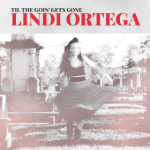
Many more albums will be released in 2017 that required much more effort to produce than Til The Goin’ Gets Gone. It’s is a sparse, four song affair recorded in parts in a bathroom and rushed to market to coincide with Ortega’s exit back to Canada. But it also does what every great piece of art requires—whether it’s a photo, sculpture, painting, film, or audio recording. It captures the bubbling up of an emotion-filled moment that one never wants to forget, even if the pain is unbearable, because it reminds one they’re still alive. (read review)
Mapache –Self-Titled

With only two people and one mic, Mapache can fill up a room with more soul soaring harmony than most symphonic assemblies, carried to great heights by melodies that are incredibly supple and bursting with delight, timeless in their textures and delivery, yet with subtle new turns that give Mapache the benefit of originality to go along with the nostalgic yearning. (read review)
Emily Herring – Gliding

Some of Emily’s best songs are when she takes those old school influences and expounds on them with her own individual experiences, like she does in the sweet, waterfalling melodies of “Best Thing I’ve Seen Yet,” or in the pining of “Yellow Mailbox.” Still, some will gravitate immediately to some of Herring’s classic covers, like the blazing take on “All the Millers in Milwaukee,” or Commander Cody’s “Semi Truck.” (read review)
Cody Jinks – Less Wise (Modified Reissue)
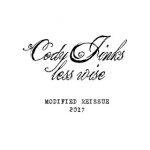
It is mostly the result of two very important songs that would make Less Wise the record that would resonate so deeply with fans, Cody Jinks could circumvent all need for “scene,” he wouldn’t have to compromise by soliciting for industry help, or kowtow to the press to find the traction he needed. And these two songs have since become standards of Cody’s live shows, and some of the most streamed songs from his catalog right beside the bigger tracks from his more recent and better-promoted projects. (read review)
Lee Ann Womack – The Lonely, The Lonesome and the Gone

There’s a reason why Miranda Lambert—who shares many of the same songwriters and the same producer as Lee Ann—decided she needed to release two discs instead of one for her last album. During an era in country music when some of the best songs are being overlooked by Music Row, and it seems like a severe risk that this material maybe be resigned to demo tapes and legal pads for eternity, Lee Ann Womack is stepping up to give these songs breath and life, and contributing her own words more than ever, benefiting from the rest of country music’s shortsightedness. The rest of us benefit too when a record like The Lonely, The Lonesome, & the Gone gets pressed. (read review)
Robyn Ludwick – This Tall to Ride
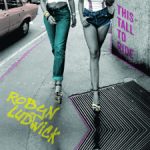
There’s a saying, “Dance like nobody’s watching.” Robyn Ludwick writes like nobody will listen and judge her personally. Let’s hope she never has to stand before a judge and explain why so many of her songs reference cocaine and sex via solicitation. She takes a devil may care attitude about it all, because these are the textures and hues she feels are her best medium. And she wouldn’t be wrong in that assessment listening to the results. Whether it’s the escapism, the intrigue, or perhaps the ability to relate to the material for some, Robyn Ludwick’s songs command your rapt attention, and repeated spins. (read review)
Chris Stapleton – From A Room: Vol. 1

The appeal for Chris Stapleton is his voice, and that is the focus of the new From A Room: Volume 1. Moving forward with the confidence that Chris Stapleton could sing the phone book, they found nine compositions in Chris Stapleton’s vast song library that compliment his voice in separate ways. One of the biggest challenges for any singer is to write songs in a way that showcases their vocal talent and challenges their range. For Stapleton, this is his greatest asset. (read review)
Charlie Parr – Dog

On this particular record, Parr uses the mirror of man’s best friend to convey those emotions and thoughts, and a lesson on the sameness of all living creatures. “A soul is a soul is a soul is a soul” is not a redundant statement from a stammering musician, it’s a necessary reminder about the universal bonds we are all a part of, no matter how much we want to remove ourselves from it, or try to shield ourselves from it via wealth, security, and walls to rid our world of what are supposed to be shared experiences of mankind. When you see the look in a homeless person’s eye when you’re handing them over the food to survive, there are no divisions in wealth or class. When you see the scared look in a dog’s eyes when they’ve lost their way, you’re stricken by how human that emotion feels. (read review)
Natalie Hemby – Puxico

This record is an assemblage of what feels like Natalie Hemby’s most heartfelt material compiled over years, with each song holding a deep importance, and each conveying an expression that is dependent on the others, however subtly, to paint a picture that exists in her mind so wound up in memory and emotion she feels an imperative to share it. Puxico is for Natalie Hemby, but as is often the case with a personal work, the result was something that resonates personally for others as well. (read review)
Moot Davis – Hierarchy of Crows
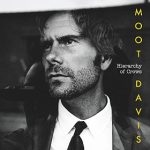
Moot is just as important to the formation of underground roots as just about anybody, and specifically in the Northeast where he’s been swimming upstream for years trying to convince the locals on the virtues of the honky tonk sound and the moan of the steel guitar, and succeeding through his infectious grooves, vintage songwriting chops, and smooth, effortless style. Hierarchy of Crows finds Moot with a decidedly heavier sound than his previous efforts, flirting with that line between rockabilly and straight up rock, and at times inching his big toe just every slightly over it, but never to the point where it puts the roots revivalist spirit of his music in peril. (read review)
Porter Union – Self-Titled

This is the spirit with which the duo Porter Union from Springfield, Missouri approaches their craft. Consisting of Cole Michael Porter and Kendra Porter, the pair dives headlong into the lost art of the country music duo in their debut, self-titled album. Though there are some efforts that would be fair to characterize as more solo in nature, most of this album features the intertwining of voices and points-of-view in ways many modern songwriters struggle to capture. You can’t just take a song and have two people sing on it, or have someone else sing one verse and call it an authentic country music duet. It must be a truly a collaborative effort like you have with Porter Union. (read review)
Charley Crockett – Lil’ G.L.’s Honky Tonk Jubilee
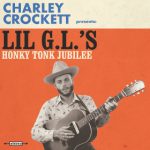
Though the songs might be familiar, it’s Charlie Crockett’s signature voice that makes the compositions come alive anew. Heretofore, Charley Crockett has been thought of just as much as a blues singer as a country one, but in Honky Tonk Jubilee he draws lines between America’s roots cousins and proves they’re not as different as some would like to think. And even though you’ll hear the New Orleans influence in his voice, Honky Tonk Jubilee is doggedly traditional country. (read review)
Bobby Bare – Things Change

Now at 82, and with his name already enshrined in the Country Music Hall of Fame, Bobby Bare doesn’t owe anything to anybody. Unlike Willie and some older artists, he doesn’t seem to have the desire to die on stage. But he does have the desire to keep moving forward as long as his energy allows, and the crowds assemble to see him. Bobby Bare’s days of hit records and heavy influence in the music industry are over, but life goes on, and so does the music. Things change, but Bobby Bare’s legacy will remained cemented in time. (read review)
Steve Earle – So You Wanna Be an Outlaw
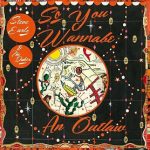
Steve Earle is one of these characters who makes you accept the good with the bad. He doesn’t make it easy for you to be a fan and sometimes it’s messy, but some people love to sift through rubble in hopes of finding that shimmering gem, however unpolished. Most artists worth their salt are a little messy. They’re just usually better at hiding it than Earle. Steve doesn’t give a shit what anyone else thinks, like the rest of us wish we could. And that’s why when it’s bad, it’s easier to ignore it. And when it’s good, you pump your fist a little bit harder for him. He’s Americana’s anti-hero: hard to love, easy to hate, and happy to oblige his fans and enemies alike. But he’s got your attention, and sometimes that’s what matters the most. (read review)
Sarah Jane Scouten – When The Bloom Falls From The Rose

When The Bloom Falls from The Rose doesn’t represent just one, but many reasons why music styles from the past can hold just as much sway on the modern heart in the present tense, whether the themes are the plight of rural people and workers, nursing a broken heart, or trying to find that one person or thing that gives you meaning and speaks to your sensibilities in a world listing in a sea of sameness. (read review)
Richard Lynch – Mending Fences
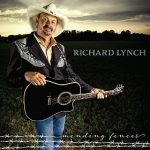
Richard Lynch resides in the country music world you might see featured on RFD-TV. This is classic, wholesome, values-based traditional country, not your young hipster throwback retro stuff focused more on style than substance. Richard writes and sings songs from his own perspective as a rural dweller from Waynesville, Ohio. The quality of both the songs and the recordings is shockingly good. Songs like “Mending Fences” and “In Over My Heart” remind you of a much simpler time and perspective. It’s like a warm breeze and fishing out on a lake, and the music carries not just quality efforts in the songwriting, but a moral and message missing from most modern country. (read review)
Kody West – Green

Yet listening to the songwriting and the developed sound on Green, this record feels anything but freshmen. It has a maturity in the subject matter well beyond Kody’s 21 years, and beyond the output of many artists who are nearly twice his age. Isn’t that the beauty of self-awareness. When you’re able to see yourself as the rest of the world does, and when you look up as opposed to look down at the elders and heroes you’re surrounded by and came before you, all of a sudden a lack of real-world experience isn’t as much of a burden, it can even be an asset. (read review)
Ira Wolf – The Closest Thing to Home

That’s what you get with singer and songwriter Ira Wolf’s The Closest Thing to Home. An inspiring collection of stories that highlight her superb songwriting, it is bound together by Ira’s real life travels in a Volkswagen named Ruby. Though the theme is travel, this album will feel as comforting as home to anyone who spent a portion of their youth roaming the West or the world’s other forgotten spaces, or those that dreamed about doing so, and still hold onto those dreams today. (read review)
Justin Dean Payne – Coal Camp
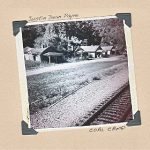
The story of coal in America may be more in the past than in the future, and possibly for fair reasons as technology offers alternatives that treat both humans and their homes with higher regard. But it’s an embarrassment how the hardships of the coal region are often cited for political gain, while the growing concerns of the region remain unresolved. At least it has resulted in some meaningful music, from the very formations of the country music genre in the early settlement of the Appalachia region, to some of the most important songwriters and performers of today. The story of coal and country music are intertwined, yet they may have never been more intimately conjoined as they are in the music of Justin Dean Payne. (read review)
Aaron Vance – My Own Way

It may be a stretch to call My Own Way Aaron Vance’s “Outlaw” album, but he certainly uses it as his opportunity to tell Nashville, his fans, and maybe himself that he’s not changing for anything. He came to Music City to make country music, and that’s what he’s going to do. He’s not changing course, or shifting what the term “country” means just to make his way easier. What good is living the country music dream if you’re not making country when you get there? If you come to town with ideals and tell yourself you’ll just compromise a little to get ahead, next thing you know you’re sliding down a slippery slope, and end up sounding like a knock off of Luke Bryan. (read review)
Old 97’s – Graveyard Whistling

The Old 97’s are what they are, and still remain so, which is an influential and often overlooked alt-country band who gets your bobbing your head, and not feeling self-conscious about it. They’re never going to be the darlings of Americana like they once were for alt-country, but they’re still providing a very necessary sound fusing country, folk, and rock, and Rhett Miller deserves equal billing right beside Ryan Adams, Jeff Tweedy, and Jay Farrar as founders of one of country music’s most important and influential subgenres. (read review)
Eric Strickland – Black and White and Blue
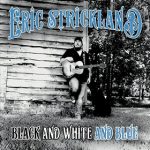
Bluegrass these days has its own set of dilemmas, including how it sometimes feels more like a skills competition as opposed to a musical art form. But Strickland returns the music to the back porch style as opposed to the pentatonic acrobatics of most modern bluegrass. Don’t expect a bunch of songs about foggy mountain bottom tops or a crazy uncle’s moonshinin’. Black and White and Blue is 12 songs you would expect to hear from Strickland, only with acoustic tones and no drums. Just like Strickland’s other records, it was produced by the well-respected Clyde Mattocks, who also plays dobro on the album. (read review)
Lukas Nelson & Promise of the Real – Self-Titled
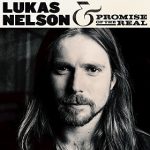
In certain respects you see this indecision play out in his new, self-titled album with The Promise of the Real. The album showcases everything that makes Lukas Nelson an exceptional performer, and worthy of praise for a name all his own, completely divested from his famous father. But Lukas Nelson is not country, until he is, and he’s rock and blues, until he isn’t. Naturally country audiences want to gravitate towards him, but he’s not the traditionalist they may hope to find. The psychedelic nature of some of his cuts attract a younger audience, but Lukas also feels like an old soul, implementing steel guitar and backup singers on certain tracks. (read review)
Angaleena Presley – Wrangled
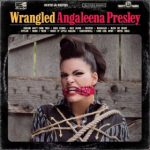
Uncaged, unhinged, and at times even inappropriate, Wrangled is Angaleena Presley making the record she wants to, be damned of the bridges left aflame and the apple carts upset. It is an unusual record, in both sound production and theme. But it also remains solidly country, Angaleena country, where no recess of the unsettled mind is off limits, and at times little psychotic voices like from demons perched on one’s shoulder get eerily uttered through bullhorn filters in the background. (read review)
Sons of the Palomino – Self-Titled

So Jeffrey Steele started The Sons of the Palomino, expressly because it covers the era and the style of country music that doesn’t really seem to be getting championed by anyone, yet still has incredible value to the people who listened to it, grew up on it, or participated in its creation during its native era. Having played bass for seven years as part of Ronnie Mack’s Barn Dance on Tuesday nights at the Palomino Club where it wasn’t unusual to see folks as far ranging as Dale Watson to Dwight Yoakam stop by, or witness Redd Volkaert or Jim Launderdale sit in with the band, the Palomino was ground zero for the country music universe for Steele and so many others. They were all “Sons of the Palomino” because the venerable club helped them get their start and forge their country music identity. (read review)
Slaid Cleaves – Ghost on the Car Radio

Yet Cleaves uses the perspective of world-wearied small town locals not as a wet blanket on the spirit, but as a way to uplift their existence, to canonize and commemorate their incredible perseverance to not acquiesce to the outside world, and to be content with who they are, even as everything they care about crumbles around them like Rome falling. (read review)
Dead Man Winter – Furnace

Furnace is about Dave Simonett’s (Trampled By Turtles) divorce, and more about Simonett’s divorce. And what is interesting is how he resists the temptation of doing anything other than blaming himself. For an album with such a singular theme inspired by a breakup, there is no true bitterness or vitriol that gets communicated, or if it is, it’s too subtle for the anger to be palpable in these songs. The music is rock or folk rock, maybe alt-country at most, maybe even pop rock at times, but the power of the songwriting and the sensible but still intelligent arrangements keep you engaged. (read review)
Whitney Rose – South Texas Suite

All the more reason to experience them while you can, put that love into song, and preserve the memory while these moments last. This is what Whitney Rose does on South Texas Suite. (read review)
Left Lane Cruiser – Claw Machine Wizard

Exhibiting growth while sticking to your roots and the heart of your sound is something every artist and band struggles with, and where many ultimately stumble. But on Claw Machine Wizard, Left Lane Cruiser walks that line with authority, and the result is maybe their most forward-thinking and accessible album yet, while leaving plenty of meat on the bones for those hardcore followers. (read review)
Liz Rose – Swimming Alone
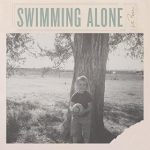
What’s really great about Swimming Alone is it has this sort of 80’s, early 90’s simplicity and sweetness to it that is so critically missing from today’s country. It’s pure nostalgia. Liz sings about working in at the family-owned Five & Dime store, and sneaking away at 13. The songs on Swimming Alone aren’t just incredibly personal, they’re true-to-life autobiographical. You find out that Liz Rose was a bit of a wild child, but with a simple country heart and perspective on the world. (read review)
Dalton Domino – Corners

Songs are at the foundation of what makes Dalton Domino’s Corners so stunning. Written mostly by Dalton himself amidst a move to sobriety, it captures the moments during a transitional phase in life that go on to define us as people, set the stage for the rest of time, and stick out in memory no matter what else fades away. These periods are when the juices of life are at their most robust, and if you can capture them in song, and do so with honesty and eloquence, the result can be something compelling. (read review)
Ags Connolly – Nothin’ Unexpected

Nothin’ Unexpected is an album of songs that Ags has slaved over and seriously thought out, yet even the songs may not be the most impressive ingredient. That may fall to how this singer from Oxfordshire is able to sing on some of these tracks with such natural timing and tone. “Neon Jail” is mind-blowing in how it’s sung. All that nuance and subtlety most U.K. country singers miss is exactly what Ags includes in this song. There’s no telling where or how the Holy Ghost of country music finds its souls to inhabit, but with results like this, it’s hard to argue that it hasn’t found a home in Ags Conolly. (read review)
Pete Schlegel – J-Town
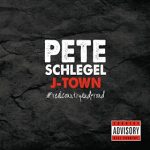
Taking catchy, repetitive beats and laying lists of buzzwords over them to immediately attract the ear is the easy way to make music. It takes keen skill to purposely limit yourself to traditional country parameters, stick to themes that pertain to actual country people, and still make something that feels new and fresh. Pete Schlegel and J-Town prove you can be traditional, but not be tired. (read review)
Madison Lewis – Back to the Blue

With Madison Lewis, it almost feels insulting to bring up her age in the context of her music because she’s so skilled and mature. But it also helps enhance the marvel at what she was able to accomplish on Back to the Blue. (read review)
Chris Stapleton – From A Room Vol. 2

Chris Stapleton remains a master at his craft. Similar to a magician, perhaps the same tricks tend to get old if you watch them too many times, but that doesn’t make the slight of hand any less deft. You want to take Chris Stapleton for granted? Just go watch Sam Hunt or Thomas Rhett. Is Stapleton not country enough for you? Ditto. How quickly some have lost sight of the time when it was Luke Bryan and Florida Georgia Line setting all the records and winning all the awards, and just how remarkable it is that Stapleton is receiving this level of recognition, acclaim, and widespread acceptance. And that his talents are quite worthy of it. (read review)
Randy Howard – A Pair of Knees
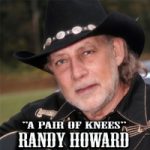
In the months before his death, Randy Howard was working on a Gospel record named A Pair Of Knees after one of his original Gospel compositions. Randy’s career was best known for penning country songs with salty language, and for railing against the Music Row establishment. There was a lot of humor in Randy’s approach to country, but like so many musicians over the years, the demons Randy struggled with in life were real, and he leaned on the strength of Gospel music to help overcome his personal struggles.
In this era of acrid opinions and judgemental mindsets that too often look down at the religious, what is often overlooked is the role that faith and Gospel music can play for some to help give them the strength to persevere over personal issues and hardship. It’s a shame that at a time when Randy Howard was renewing his faith through Gospel music that his life was taken from him in a senseless act over an incidental issue. But it’s also fortunate that his final breaths in music were captured in moments of faith and servitude before he passed on. (read review)
Lost Bayou Ramblers – Kalenda

Kalenda is quite striking, harsh in its tones and message sometimes, and certainly not for everyone. But in a genre lost in time and oft forgotten in popular music, yet so essential as a building block to melodies and modes that bubble up through most all popular music today, a musical journey with the Lost Bayou Ramblers—for those brave enough and willing of spirit—can be a fulfilling, enjoyable trek, however fey some of the twists and turns may feel. (read review)
Sallie Ford – Soul Sick

The music of Sallie Ford is endearingly silly, catchy yet smart, cleverly stupid in places, just kitschy enough without overdoing it, and cool in a dorky way. It’s fairly straightforward music with a throwback vibe, and Sallie’s unabashed, sometimes clumsy, yet curiously fetching vocal delivery takes a little warming up to, but ultimately becomes an asset. It’s like a high school band that is extremely good by accident, and you just love to root for because they remind you of your own awkward self. (read review)
Th’ Legendary Shack Shakers – After You’ve Gone
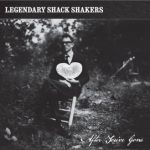
This is vintage Shack Shakers in the way the cork is unscrewed, and blood and sweat come shooting out of blues guitar riffs with a punk overdrive, and crazy harmonica runs punctuate punches to the gut. There’s also a surprising amount of piano on this record. JD Wilkes has always been a fearless venturer into the depths of the human id, exorcising what may evidence itself in sidewinding showmanship, but these bursts of energy and expression have exhalations of the spirit behind them that borders on the religious. (read review)
AJ Hobbs – Too Much Is Never Enough
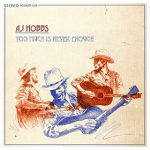
They say you have your life to write your first album, and there is a lifetime’s worth of stories and experiences in the very personal Too Much Is Never Enough. Adding backup singers and a hot shit band behind him only helps to enhance it all without denting the grease and authenticity of the record. (read review)
Ray Wylie Hubbard – Tell The Devil I’m Getting There As Fast As I Can
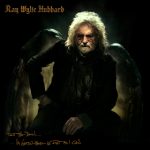
Complain all day this music is not relevant. But there is a reason acts like Eric Church and The Cadillac Three are name dropping Ray Wylie Hubbard and asking him to share the stage with them. It’s because when you start digging deeper into the modes and styles of American music, you discover crusty old criminally-overlooked guys like Ray infer even the most popular stuff. Ray is the kind of cool everyone wants to be, but few have the cred, stories, and skins on the wall to capture. (read review)
Gregg Allamn – Southern Blood
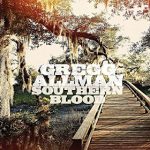
Gregg Allman’s legacy was well secured before even a note was sung or played on Southern Blood. He didn’t owe us anything more. But like he did for half a century, Gregg Allman delivered, and not just for himself, but for one final hurrah of The Allman Brothers legacy that now has a life of its own, beyond Gregg and Duane, influencing artists, and entertaining fans for many more half centuries to come. (read review)
Wheeler Walker Jr. – Ol’ Wheeler
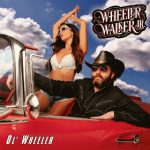
Wheeler Walker Jr. has an entirely new album’s worth of songs. That’s what he’s got. And he’s got ’em in a pretty short turnaround, and they’re just as funny and wit-filled as the first, if not more. The shock has now worn off, and we know what to expect, yet he still splits your ribs not just from the ribald verbiage, but from the way he uses it—his turn of phrase. (read review)
Lee Bains III and the Glory Fires – Youth Detention
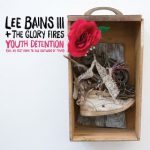
Youth Detention is definitely raw, and in moments constitutes a bellicose racket set to Southern-inflected rock styles. But it’s also expansive, and slightly conceptualized, with some tracks bleeding into others, or certain themes or audio elements becoming recurrent. There’s the shouting and the loud guitars that made Deconstructed so destabilized. But it’s still an infectious and forward-thinking music project with enough Southern ties to at least pay attention to it as a roots fan, and should put Lee Bains and the Glory Fires back on the radar as one of this generation’s foremost Southern rock troupes. (read review)
John Prine – Beyond Words (book)
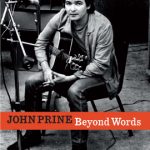
What Beyond Words does have is some amazing photos of Prine’s career, and not just of Prine himself, but many of the other famous music folks he hobnobbed with over his tenure. There’s Prine with folks like Kristofferson and “Cowboy” Jack Clement of course, but there’s also some unexpected photos, like the picture of John with a very young, and very cute Bonnie Raitt, and an ultra-suave and hungry Tom Waits all hanging out together at the Grand Ole Opry House in 1973 or ’74. It’s photos like these, along the family shots and scans of what would become iconic songs scribbled on pieces of paper that really help put into perspective just what a charmed and storied life Prine has lived. (read review)
Other Albums Receiving a Positive Grade:
Alex Williams – Better Than Myself (read review)
Margo Price – American Made (read review)
Brad Paisley – Love & War (read review)
Kip Moore – Slowheart (read review)
Aaron Watson – Vaquero (read review)
Zac Brown Band – Welcome Home (read review)
Dale Watson & Ray Benson – Dale & Ray (read review)
Blake Shelton – Texoma Shore (read review)
Koe Wetzel – Noise Complaint (read review)
Other Albums Waiting For Review / On The Radar / Worth Checking Out:
- The Steel Woods – Straw in the Wind
- Eilen Jewell – Down Hearted Blues
- David Rawlings – Poor David’s Almanac
- Alison Krauss – Windy City
- Garry Braddy – His Way Back Home
- Grant Malloy Smith – Dust Bowl: American Stories
- The White Buffalo – The Darkest Darks, The Lightest Lights
- Neon Moon – 6:53
- Rex Hobart & The Misery Boys – Long Shot of Hard Stuff
- Jeremy Pinnell – Ties of Blood and Affection
- The Mavericks – Brand New Day
- Radney Foster – For You to See The Stars
- Drew Kennedy – At Home in the Big Lonesome
- Travis Meadows – First Cigarette
- Willie Nelson – Willie and the Boys: Willie’s Stash Vol. 2
- Daniel Antopolsky – Old-Timey, Soulful, Hippy-Dippy Flower Child Songs from the Cosmos
- Kendell Marvel – Lowdown & Lonesome
- Chris Hillman – Bidin’ My Time
- Ryan Koenig – Two Different Worlds
- Rhiannon Giddens- Freedom Highway
- Petunia & The Vipers – Lonesome & Heavy and Lonesome
- Gethen Jenkins – Where the Honkytonk Belongs
- Jillette Johnson – All I Ever See in You Is Me
- Charley Pride – Music in My Heart


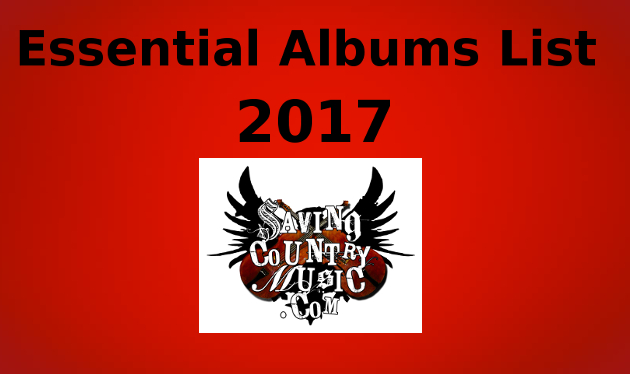
December 27, 2017 @ 9:28 am
So much good music; I did not hear a lot of these that Trigger mentioned and a few others didn’t quite make my list. These were my favorites from 2017; obviously not all country:
Turnpike Troubadours – A Long Way From Your Heart
Willie Nelson – God’s Problem Child
Chris Stapleton – From A Room Vol 1 & 2
The Replacements – Live At Maxwell’s 1986
Steve Earle – So You Wanna Be An Outlaw
Cheap Trick – Christmas Christmas
Cody Jinks – Less Wise
Jason Isbell – Nashville Sound
Gregg Allman – Southern Blood
Sarah Shook & The Disarmers – Sidelong
Thanks for the great list and the work you do!
December 27, 2017 @ 12:31 pm
Clap clap for The Mats…
December 27, 2017 @ 9:36 am
Will Hoge’s “Anchors” and Jeremy Pinnell’s “Ties of Blood and Affection”.
December 27, 2017 @ 9:53 am
No Infamous Stringdusters?
December 27, 2017 @ 10:12 am
The following is my final, final:
1. Tyler Childers – Purgatory
2. Dead Man Winter – Furnace
3. Hellbound Glory – Pinball
4. Lee Ann Womack – The Lonely, The Lonesome, & The Gone
5. Turnpike Troubadours – A Long Way From Your Heart
6. Jason Isbell and the 400 Unit – The Nashville Sound
7. Bob Wayne – Bad Hombre
8. Colter Wall – Colter Wall
9. Rod Melancon – Southern Gothic
10. Steve Earle & The Dukes – So You Wannabe An Outlaw
11. Joseph Huber – The Suffering Stage
12. Deer Tick – Deer Tick Vol. 1 & Vol. 2
13. Chris Stapleton – From A Room: Vol. 1 & Vol. 2
14. Lukas Nelson – Promise of the Real
15. Marty Stuart and His Fabulous Superlatives – Way Out West
16. Margo Price – All American Made
17. Eric Strickland – Black And White And Blue
18. David Rawlings – Poor David’s Almanack
Many of there are SCM artists. Often times I go to shows and get to talking to the artist/band and they ask how I discovered them and I always reply, “Trig at Saving Country Music.” So, thank you for all your hard work.
Have you ever thought of selling a Saving Country Music t-shirt?
I’m also including my concert rankings for the year (I remember when you did the same in the early years). It got a lot of feedback when I posted it last week (maybe because of the ending) ….
1. Cody Jinks
Stage AE, Pittsburgh, PA – June 29, 2017
I didn’t even hear the two songs I most wanted to hear (“Dirt,” “Heavy Load”) and still left satisfied.
2. Tom Petty & The Heartbreakers
PPG Paints Arena, Pittsburgh, PA – June 9, 2017
My last Tom Petty concert.
3. Outlaw Music Fest: Willie Nelson, The Avett Brothers, Sheryl Crow, Blackberry Smoke
Blossom Music Center, Cuyahoga Falls, OH – September 15, 2017
Of the three Willie shows, this was the one he played the longest. And the Avett Bros. lit the stage on fire during their only moonlight performance of the run.
4. Old Crow Medicine Show “50 Years of Blonde on Blonde”
Stage AE, Pittsburgh, PA – May 30, 2017
It’s no small feat to pull this off – playing an entire Dylan double album in its entirety with an intermission. Even the encore was more Dylan songs (Knockin’ on Heavens Door, Quinn the Eskimo). But OCMS did it and it was wildly entertaining.
5. Farm AID 32: Willie Nelson, Neil Young, John Mellencamp, Dave Matthews, Sheryl Crow, Jack Johnson, Nathaniel Rateliff, Jamey Johnson, Avett Brothers, Margo Price, Blackberry Smoke
KeyBank Pavilion, Burgettstown, PA – September 16, 2017
6. Nick Dittmeier & the Sawdusters
Howlers, Pittsburgh, PA – October 19, 2017
7. Mountain Stage: Margo Price, Solas, Dead Man Winter, The Company Stores, Johnny Fritz
Charleston Civic Center Little Theater, Charleston, WV – February 26, 2017
8. Outlaw Music Festival: Willie Nelson, Van Morrison, Sheryl Crow, The Avett Brothers
Hersheypark Stadium, Hershey, PA – September 10, 2017
This was the dumpiest venue I’ve ever been to for a concert. It’s literally a high school football stadium with high school stadium amenities in the middle of a freaking amusement park.
9. A homeless man humming “Amazing Grace” on Carson Street
10. A kid with a baseball card placed in the spokes of his bicycle riding down Bellecrest Ave.
11. Turnpike Troubadours
The Mill & Mine, Knoxville, Tennessee /April 23, 2017
December 27, 2017 @ 11:09 am
At least you have a sense of humor regarding concert #11. I do like your album listing, too.
December 27, 2017 @ 2:12 pm
”Have you ever thought of selling a Saving Country Music t-shirt?”
GREAT idea Hoptown ….
Trigger ?……
December 27, 2017 @ 2:47 pm
Saving Country Music does not sell merch, and this is a policy that has been in place from the start. I would rather people spend their money on the bands, artists, live events, and festivals highlighted here as opposed to the middle man. Also, something tells me that as soon as I start stamping my logo on stuff, it will show up being burned in effigy. Going merch free helps keep the site independent.
That said, about 5 or so years ago I traded some work for a small batch of shirts that has been sitting at Saving Country Music headquarters ever since. I may do a short-run sale at some point very soon just to get them out of my hair.
There is a lot of stuff going on behind-the-scenes at the moment, working on shoring up the site for the future, and adding some new features. Stay tuned.
December 27, 2017 @ 5:09 pm
Glad to hear that. Love this site man, not one of the many hours I have spent here have been wasted. Thanks for your work
December 27, 2017 @ 7:39 pm
I get that, but you built a community – or a small army. When I was at Nick Dittmeier, I looked around and wondered how many people in attendance were readers of SCM. It would be a cool way to identify ourselves. Plus, this started off as a movement; enjoy the fruits of your labor!
December 27, 2017 @ 9:29 pm
I think the t-shirts would sell well. It might help offset the cost of maintaining the site. I would proudly wear one.
December 28, 2017 @ 2:56 am
Triggerman, you know i’m one of the good guys..how much for a 2XL?
December 28, 2017 @ 6:55 am
I can attest that Hersheypark Stadium is just as dumpy for high school football as it is for a concert.
December 27, 2017 @ 10:30 am
Nice list, I’ve heard most of these, but I’ve still got a bit of listening to do. Thank you for all your hard work in seeking all this stuff out and also making a list this detailed and comprehensive. Some more albums I can add, for people seeking good music:
Kasey Chambers — Dragonfly
Suzanne Santo — Ruby Red
The Infamous Stringdusters — Laws of Gravity
Nikki Lane — Highway Queen
Crystal Bowersox — Alive
Amanda Anne Platt & the Honeycutters (self-titled)
Rod Melancon — Southern Gothic
Gretchen Wilson — Ready to Get Rowdy (terrible title, but actually a pretty good album)
Glad to see The Steel woods and Charley Pride mentioned up there in the additional albums, as those two also come well recommended.
December 27, 2017 @ 4:53 pm
And I’d further add…
Christian Lopez – ‘Red Arrow’
Ned LeDoux – ‘Sagebrush’
Steelism – ‘Ism’
Charlie Worsham – ‘Beginning of Things’
The Whiskey Gentry – ‘Dead Ringer’
Joey McGee – ‘Terlingua Taproot’
Steve Martin and the Steep Canyon Rangers – ‘The Long Awaited Album’
Erin Enderlin – ‘Whiskeytown Crier’
The Whiskey Shivers – ‘Some Part of Something’
BUUUUTTT I don’t want to discount the albums above either 🙂 just throwing more out in the open!
December 27, 2017 @ 5:48 pm
Yes. Erin Enderlin. THANK YOU!
December 31, 2017 @ 1:30 pm
“You Don’t Know Jack” literally brings me to tears each time I listen to it . IMO it is one the THE BEST COUNTRY SONGS EVER WRITTEN . Unfortunately it would up on a Luke Bryan record and I’d bet my firstborn that his fans just would not appreciate how incredible it is .
December 31, 2017 @ 3:30 pm
What a low all caps opinion you have to bet your firstborn on anything to do with country music. But whatever lowercase bert, to each his own.
December 27, 2017 @ 8:42 pm
Loved Red Arrow. Christian Lopez is amazing.
December 28, 2017 @ 12:59 am
Actually, I hit Post Comment and then remembered Sagebrush, Whiskeytown Crier, and dead Ringer, so thanks for adding them 😀 also:
Flatt Lonesome — Silence in These Walls
January 4, 2018 @ 8:49 am
Gretchen Wilson — Ready to Get Rowdy is an Ass kicking release! It has not been getting the cred it deserves.
December 27, 2017 @ 11:24 am
What about Sweet Southern Sugar by Kid Rock?
December 29, 2017 @ 5:15 pm
I think it was left off the list for a reason.
December 27, 2017 @ 11:30 am
Obviously you can’t include every good album on this list, or it’d probably be the size of “War And Peace”. However, just for the heck of it:
ECHO CANYON–Alice Wallace: This album got a rave review and rightly so, especially for the title track, a bit of evocative Western imagery in a C&W/rock context, and Alice (sounding a bit like Trisha Yearwood) catching that old-school (Linda Ronstadt/Emmylou Harris) vibe.
STITCH OF THE WORLD–Tift Merritt: This is my album of the year in terms of female artists, and one of the best of 2017 overall. Tift has been my favorite female singer in any genre to come along in this century, and this is confirmed with such tracks as the bluesy twang of “Dusty Old Man”, the country-rock track “Heartache Is An Uphill Climb”, and “Something Came Over Me”.
December 27, 2017 @ 2:49 pm
“Echo Canyon” was just a lead song. I think Allice Wallace is planning to release the record for it in 2018.
I had Tift Merritt’s song “My Boat” on the Top 25 Current Playlist for a good long while. Still may review the album.
December 27, 2017 @ 6:51 pm
My mistake re. Alice Wallace.
Only thing about Tift’s album is that it was released back in January of this year. But please review it, Trigger, if you want to.
December 27, 2017 @ 11:39 am
Trigger have you listened to kyle fields new album?
December 27, 2017 @ 2:50 pm
The Kyle Fields record is on my radar.
December 27, 2017 @ 9:18 pm
I liken him to what Josh Ward was maybe 5 years ago. He’s got a ways to go before being a contender. Just my opinion ion of course.
December 27, 2017 @ 11:44 am
Forewarning, many of these albums are definitively not country. Still highly recommend.
1. Mutoid Man – War Moans
2. Golden Pelicans – Disciples Of Blood
3. Queens Of The Stone Age – Villains
4. Chris Stapleton – From A Room – Volume 1
5. Mastodon – Emperor Of Sand
6. LCD Soundsystem – American Dream
7. Tyler Childers – Purgatory
8. Pissed Jeans – Why Love Now
9. Thee Oh Sees – Orc
10. The Yawpers – Boy In A Well
11. Dead Cross – Dead Cross
12. Midland – On The Rocks
13. JD McPherson – Undivided Hearth & Soul
14. Turnpike Troubadours – A Long Way From Your Heart
15. Whitney Rose – Rule 62
16. At The Drive-In – Internalia
17. Japandroids – Near To The Wild Heart Of Life
18. Crystal Fairy – Crystal Fairy
19. Spoon – Hot Thoughts
20. St. Vincent – Masseducation
21. Jason Isbell & The 400 Unit – The Nashville Sound
22. Converge – The Dusk In Us
23. Chris Stapleton – From A Room – Volume 2
24. Sheer Mag – Need To Feel Your Love
25. Ty Segall – Ty Segall
26. Sheer Mag – Compilation LP
December 27, 2017 @ 3:01 pm
I didn’t know The Yawpers had a new album out. I saw them in Dallas after American Man came out. They were great. So good live that I wished they had not played a few covers because I wanted to hear more of their music.
December 27, 2017 @ 11:50 am
I know you hate Midland but their “On The Rocks” album should be on the list. Are you doing a separate “mainstream” album list? Regardless of your feelings towards their fabricated backstory, it’s hard to not admit their album was one of the best mainstream releases this year.
December 27, 2017 @ 2:51 pm
Yes, separate mainstream list coming. You’ll just have to wait and see if Midland makes it 🙂 .
December 27, 2017 @ 12:01 pm
Straw in the Wind was one of my absolute favorite albums of the past year and I’m very much looking forward to the full review.
December 27, 2017 @ 12:09 pm
Thank you Trigger for all the work you put in this year! I’ve purchased several of these albums after reading your reviews.
December 27, 2017 @ 12:15 pm
Please. Any essential country list without Beeyonsay on it, is just a joke..
Seriously though, nice list!
December 27, 2017 @ 12:18 pm
Sunny Sweeney’s Trophy is on all kinds of Top 10 lists for 2017 and it’s absent here. Did you just overlook it Trigger, or did you feel like it didn’t make the grade?
December 27, 2017 @ 2:41 pm
I forgot Trophy on my own list above; definitely belongs there. Probably DBT American Band too.
December 27, 2017 @ 2:44 pm
Steve, Trophy was on Trigger’s Album of the Year list…
December 27, 2017 @ 2:50 pm
Well, when I went back and read the rules for this post, I realized it wasn’t on here because it was an Album of the Year contender and on that list. My mistake.
December 27, 2017 @ 1:15 pm
Lots of great stuff here, including some of my faves. 🙂
My top picks (bought or received as gifts):
Rhiannon Giddens, ‘Freedom Highway’
Angaleena Presley, ‘Wrangled’ (just got this on CD for Christmas)
Hurray for the Riff Raff, ‘The Navigator’
Valerie June, ‘The Order of Time’
Chris Stapleton, ‘From A Room,’ vol. 1 and 2
Ray Davies, ‘Americana’
Alison Krauss, ‘Windy City’
Joan Osborne, ‘Songs of Bob Dylan’
Sheryl Crow, ‘Be Myself’ (fun throwback to her ’90s sound)
Others I’ve heard:
Lee Ann Womack, ‘The Lonely, the Lonesome & the Gone’ (next on my wish list)
The Mavericks, ‘Brand New Day’
Dori Freeman, ‘Letter Never Read’
Rodney Crowell, ‘Close Ties’
Jason Isbell & the 400 Unit, ‘The Nashville Sound’
Zephaniah Ohora, ‘This Highway’
Jim Lauderdale, ‘London Southern’
Tift Merritt, ‘Stitch of the World’
Natalie Hemby, ‘Puxico’
Margo Price, ‘All American Made’
December 27, 2017 @ 1:25 pm
Thank you Trigger for including Richard Lynch’s Mending Fences in this incredible list ! We are honored !
December 27, 2017 @ 1:25 pm
Gethen Jenkins is doing some really good stuff. He has a cover of “When I get my wings” on YouTube and it’s one of the best things I have heard.
December 27, 2017 @ 1:31 pm
My Essential Album List 2017:
Fanny Lumsden – Real Class Act (Australian alt-country artist)
Donna Ulisse – Breakin’ Easy (Award winning Bluegrass Singer/Songwriter…music for the soul)
Richard Lynch – Mending Fences (The best George Strait album never recorded by George Strait)
Gretta Ziller – Queen Of Boomtown (Australian alt-country artist with my Song Of The Year 2017)
Adam Harvey & Beccy Cole – The Great Country Songbook Vol.II (Duets, Duets, Duets)
Rhonda Vincent & Daryle Singletary – American Grandstand (Duets, Duets, Duets)
Liam Kennedy-Clark & Cassi Hilbers – Duo (Duets, Duets….well…Duets)
Tania Kernaghan – All Australian Girl (All-australian country music)
Emily Herring – Gliding (Great artist, great music)
Angus Gill – Nomad (Young aussie with talent & unique voice)
Courtney Lynn – Pretty Things (Some great songs…some not so great songs…one artist i want to hear more in the future)
Tom Curtain – Territory Time (“Never Never Land”!)
James Blundell – Campfire (With a sugar-sweet cover version of Madonnas “True Blue” – a duet with Tania Kernaghan)
&
Lee Ann Womack – The Lonely, The Lonesome & The Gone (My album of 2017 & a future classic)
The only albums on Triggers list i have to disagree are Ol’ Wheeler (Wheeler Walker Jr.) & the new Margo Price album. American Made (Margo Price) is a disappointment (maybe THE disappointment of the year) & Ol’ Wheeler…meh.
December 27, 2017 @ 1:51 pm
Prediction: 2018 list… Jason James’!
December 27, 2017 @ 2:05 pm
nice list.
absolutely love the sarah shook album..
Saw her live this year too and that was great.
Another great album, although no new material, but a live set, was the Brandy Clark Live in LA.
December 27, 2017 @ 2:39 pm
Blake Shelton? Positive grade? Is that the album with that ‘fajitas and margaritas’ song on it? Please tell me it’s a misprint!! Otherwise, it’s like People magazine blindly giving faux country bro the ‘sexiest man of the year’. Good lord, I wonder what blind person approved that mess?
In other news – Troubadors should be here, unless they were in contention for AOTY?
One of my favorite releases this year was Red Arrow by Christian Lopez. His first big release was overproduced by Dave Cobb. This year’s was a bit more pop, but had some amazing songs on it, including some that would be right at home at the Opry. Suggest listening to “Still on Its Feet”, which has beautiful lead guitar by Vince Gill, or “All the Time”, which is about choices you make as a young man becoming an adult.
December 27, 2017 @ 2:56 pm
Blake Shelton may have release the best record in the mainstream this year, and I’m not even joking. Every album has a right to a fair trial.
Turnpike Troubadours were nominated for Album of the Year.
December 27, 2017 @ 8:45 pm
Thanks Trigger. I used to like Shelton, but every flipping song sounds the same. So, you didn’t like the fajitas and margaritas song? I feel better about the world now. 🙂
December 27, 2017 @ 5:04 pm
NO, it’s not that Blake Shelton album.
I hate this Shelton album as well, though, have to agree, actually like the album you’re speaking of better in parts.
Don’t insult blind people in that way.
December 27, 2017 @ 3:21 pm
Think I said this elsewhere, but one of the best albums I heard this year was George Jones and The Smokey Mountain Boys, from the 70s but only just released. It’s a complete joy, and absolutely worth picking up if you haven’t already!
December 27, 2017 @ 8:16 pm
J, I agree with you, a really great release from the Possum’s vault that got a lot of airplay at my house.
December 27, 2017 @ 3:27 pm
Here’s one I know isn’t on your radar that’s worth checking out: Lloyd McCarter and the Honky Tonk Revival – Immortal for Now.
A Nebraska-based band that’s heavily influenced by old school honky-tonk.
December 27, 2017 @ 8:00 pm
I agree, I saw them when I was in college at the Community Hall in Cuba, KS. I got their previous album and like what I heard on their new one.
December 27, 2017 @ 3:41 pm
Band of Heathens – Duende
Blitzen Trapper – Wild & Reckless
Cale Tyson – Careless Soul
Chris Blevins – Better Than Alone
James Carothers – Relapse
Little Steven – Soulfire
December 29, 2017 @ 5:59 am
Nobody made a better record than Little Steven’s Soulfire. Criminally underrated.
December 27, 2017 @ 5:15 pm
I wish Josh Ritter got more credit. His album “Gathering” was top notch.
December 27, 2017 @ 6:07 pm
Scott H Biram – “The Bad Testament”.
Criminally underrated.
December 27, 2017 @ 7:48 pm
Trig, love the list and own a lot of it, thanks to you, so appreciate all the leads on new music… however, I will admit to some disappointment regarding three notable omissions:
Nikki Lane-Highway Queen
Lillie Mae- Forever and Then Some
Hayley Thompson King- Psychotic Melancholia
I am still digging Biscuit’s album of the year, Way Out West. Thanks for your work this year Trig, Happy New Year!
December 27, 2017 @ 7:51 pm
This was my Favorite Albums of 2017 list, not all would be mentioned on SCM, but many were on your AOTY & Essentials list.
1. Ha Ha Tonka – Heart Shaped Mountain
2. The Afghan Whigs – In Spades
3. Richard Edwards – Lemon Cotton Candy Sunset
4. Cory Branan – Adios
5. Jason Isbell – The Nashville Sound
6. John Moreland – Big Bad Luv
7. Old 97’s – Graveyard Whistling
8. Nikki Lane – Highway Queen
9. Knox Hamilton – The Heights
10. The Lone Bellow – Walk Into A Storm
11. Margo Price – All American Made
12. matt pond PA- Still Summer
13. The National – Sleep Well Beast
14. Cody Fry – Flying
15. Andy Suzuki & The Method – The Glass Hour
16. Tyler Childers – Purgatory
Runners-up:
Sarah Shook, Banditos, Drew Holcomb, Dale & Ray, Will Hoge
December 27, 2017 @ 10:14 pm
great list! very happy to see Payne and Dori in this post. those are two more of my favorite releases this year. 👍
December 27, 2017 @ 11:08 pm
Colter and Eady put out awesome projects this year. Just the other day I heard Eady’s song “Rain”, which if I recall correctly I either didn’t like much at the time I purchased it or simply skipped over without giving it it’s due. I’ve had that song on near-repeat for the last 24-36 hours…the fiddle just gives me goosebumps.
On Colter’s album, I like most of the songs well enough, but it’s the most sparse and simple track “Bald Butte” that takes the cake for me. Something about the way it tells a story plus the fact that it sounds so hauntingly old fashioned and authentic. Makes you feel like you’re in the old west.
Then you mentioned Justin Payne. I got acquainted with him through W.B. Walker’s radio show. That last track on the Coal Camp EP called “The Mines” has been on that same repeat loop with Eady’s Rain for a couple days now. I can thank an old episode of WB Walker’s show for introducing me to that one and reintroducing me to “Rain”.
Damn I love country music and the folks who work their asses off (like Trigger and WB) to bring it to the attention of regular folks like us.
December 27, 2017 @ 11:22 pm
Hey Trigger, I’d like to see you do an album review over Teea Goans’ “Swing Shuffle and Sway” album! She’s a great new traditionalist! I’d like to see promotion in her music her as well!
December 28, 2017 @ 7:30 am
Wow this is a very comprehensive list of artists and albums from 2017. If only this was the pool of artists that was being played on country radio instead of the current stuff.
December 28, 2017 @ 8:17 am
The White Buffalo’s “Darkest Darks, Lightest Lights” is awesome. His whole discography is terrific and worth checking out if you really like good songwriting driven by heavy acoustic guitar. The White Buffalo definitely deserves more exposure.
December 28, 2017 @ 8:59 am
I’ll add one more that Trigger told us was coming, and I really like:
Porter and the Bluebonnett Rattlesnakes: It’s Gonna Get Weird Without You
Obviously released after Chris Porter’s tragic death. He sounds so much like Mike Cooley of DBT and I have always loved Cooley’s voice.
December 28, 2017 @ 2:40 pm
Great list, Trigger, and my utmost thanks for you opening my eyes to so much incredible new music this year. Shinyribs, Furnace, Robyn Ludwick and many of the others above were off my radar until you introduced me. I’m also a huge J.D. fan and can’t say enough good things about UNDIVIDED HEART AND SOUL. Just wondering, though, who specifically you refer to in your comment about East Nashvillians with the horn sections and retro-soul commercial sounds. I have somebody in mind, with mixed feelings about his work, but his paychecks are coming from a company not named Apple or The Gap. Happy 2018 and keep up the solid writing.
December 28, 2017 @ 3:07 pm
A forgotten gem, their second album, the self-entitled Tattletail Saints. All original songs, Cy Winstanley, who does all the writing, and Vanessa McGowan, who adds vocals and bass, have a folk-country feel. My favorites: Little Richard Is Alive Well in Nashville, TN 🎹🎼Seabird 🐦 Sonoma County Wine 🍷 and Kathleen 👧.
December 29, 2017 @ 1:41 am
My Essentials playlist keeps growing.
https://www.youtube.com/playlist?list=PL9x40WkKYiAQ-p9vUmYk9DoZ_DyNBSuIe
December 29, 2017 @ 6:05 am
I suggest that anyone who loves Americana check out Black Irish by Shannon McNally. Produced by Rodney Crowell. It hits all the bases. Blues, R&B, Country, Rockabilly and straight ahead Rock N Roll. Shannon is a superior singer and every song is dripping with soul.
December 30, 2017 @ 12:49 pm
I learn something every time I come to this website. Thanks for the list. Two of the artists are right here in my back yard, Strickland from Four Oaks (Johnston County is full of great musicians) and Shook from Pittsboro. I hadn’t heard of either until I started following SCM. After reading about Shook I was over at the home of a great friends son and low and behold he had Shook on the turntable!
December 30, 2017 @ 6:28 pm
WINDY CITY- Alison Kraus did the unthinkable
She made the best damn country album of the year.
I’ve played “I Never Cared For You” over 600 Times.
Vaquero and Womack have also been highlights this year
December 31, 2017 @ 10:12 am
When the drums began the song had to come to an end
December 31, 2017 @ 10:08 am
I remember when Scott H Biram was a big deal around here
January 2, 2018 @ 7:05 pm
The Deslondes are the most under rated band out there. Those guys are incredible and their album Hurry Home should be on this list.
January 3, 2018 @ 3:52 pm
If anyone is interested. Here is a youtube playlist of my favorite music videos from 2017. This includes most of the artists included in this list and some others I felt are missed. Most of this is country/Americana but does include some Americana, Texas/Red Dirt, Bluegrass, Blues, and some rock.
https://www.youtube.com/playlist?list=PLH3NKsB1DGwVX7HOn04pX5TReLMXxAKHf